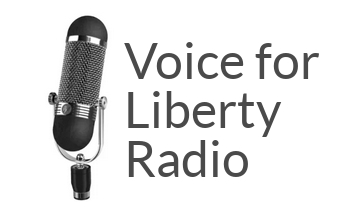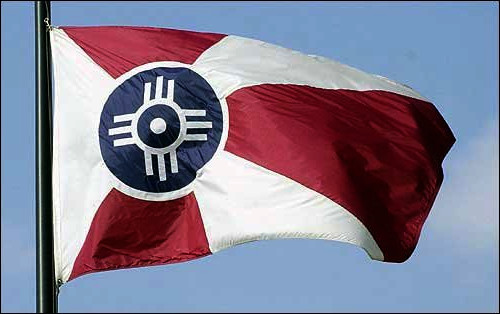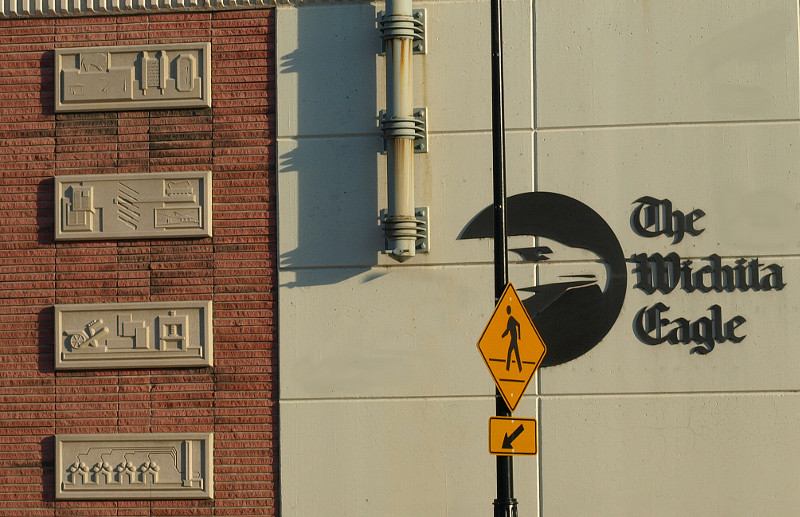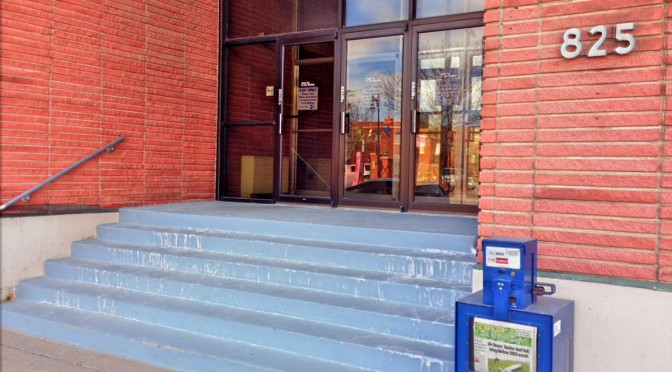Tag: Wichita news media
-

Newspaper reports on lack of source for news
I wonder if the reporters and editors at Wichita Business Journal can see the rich irony in this article.
-

Wichita Eagle Publisher Roy Heatherly
Wichita Eagle Publisher Roy Heatherly spoke to the Wichita Pachyderm Club on January 15, 2016.
-

Wichita Eagle: Reporting, then research
Wichita Eagle reporting on a controversy involving religion might leave discerning readers wondering just what is the correct story.
-

Wichita Business Journal reporting misses the point
Reporting by the Wichita Business Journal regarding economic development incentives in Wichita makes a big mistake in overlooking where the real money is.
-

In Wichita, open records relief may be on the way
A new law in Kansas may provide opportunities for better enforcement of the Kansas Open Records Act.
-

WichitaLiberty.TV: Kansas legislative failure, newspaper editorials, and classical liberalism
In this episode of WichitaLiberty.TV: The failure of Kansas lawmakers to reform state spending means you will pay. A newspaper editorial excuses bad behavior by government. Then: What do classical liberals and libertarians believe?
-

In Wichita, bad governmental behavior excused
A Wichita newspaper op-ed is either ignorant of, or decides to forgive and excuse, bad behavior in Wichita government, particularly by then-mayoral candidate Jeff Longwell.
-

Intrust Bank Arena loss for 2014 is $5 million
The depreciation expense of Intrust Bank Arena in downtown Wichita recognizes and accounts for the sacrifices of the people of Sedgwick County and its visitors to pay for the arena. But no one wants to talk about this.
-

WichitaLiberty.TV: Wichita Eagle reporting, marijuana laws, and the Kansas economy
The Wichita Eagle prints several stories that ought to cause readers to question the reliability of its newsroom. Wichita voters pass a marijuana law that conflicts state law. Performance of the Kansas economy. Finally, some unexplained results in the way people vote.
-

Wichita Eagle fails readers, again
In its coverage of the 2015 election, the Wichita Eagle prints several stories that ought to cause readers to question the reliability of its newsroom.
-

WichitaLiberty.TV: A downtown parking garage deal, academic freedom attacked at KU, and classical liberalism
In this episode of WichitaLiberty.TV: While chair of the Wichita Metro Chamber of Commerce, a Wichita business leader strikes a deal that’s costly for taxpayers. A Kansas University faculty member is under attack from groups that don’t like his politics. Then, how can classical liberalism help us all get along with each other?
-

WichitaLiberty.TV: The Wichita Eagle fails the city and its readers
In this excerpt from WichitaLiberty.TV: In its coverage of the recent election, the Wichita Eagle has failed to inform its readers of city and state issues.